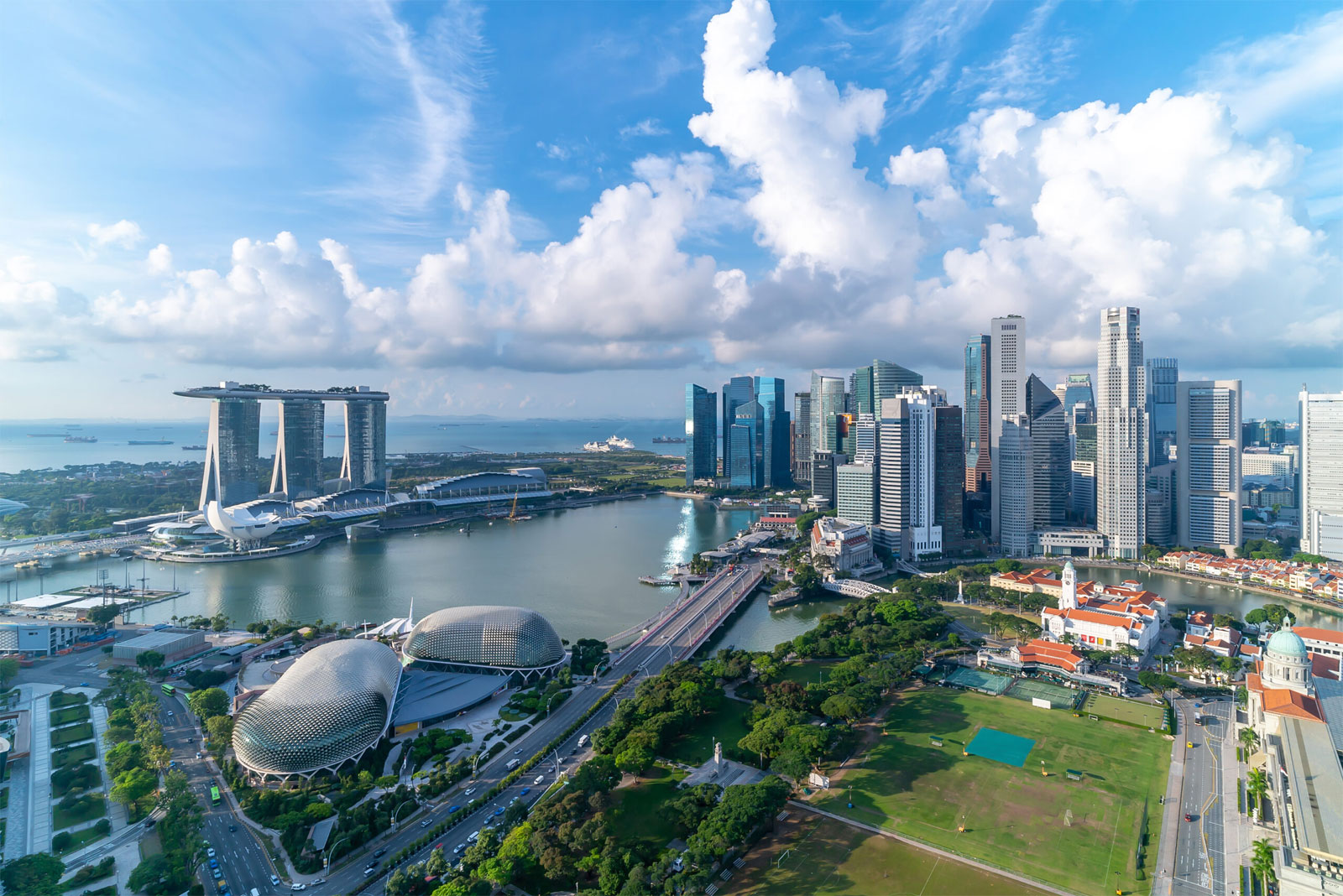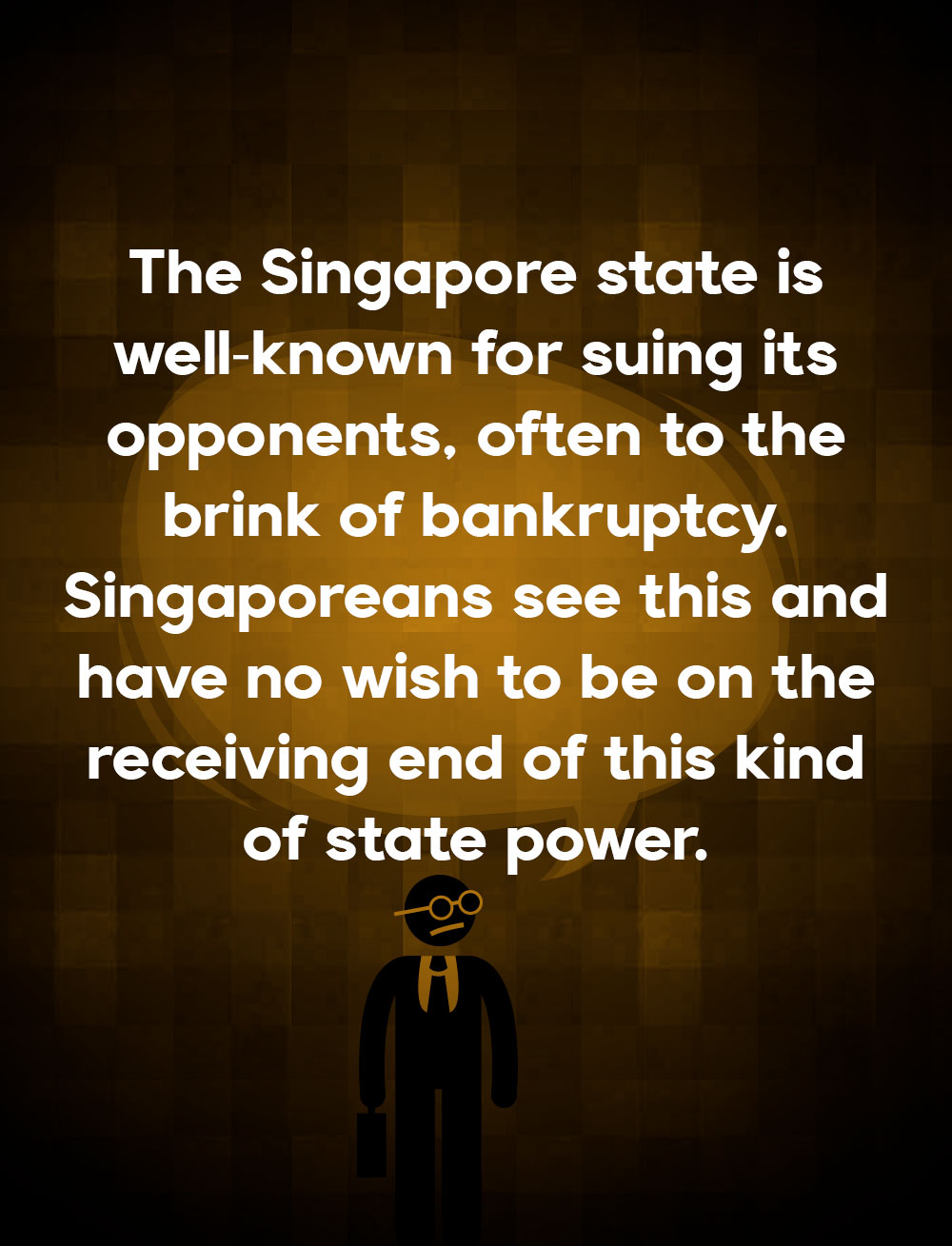To most outsiders, Singapore looks like a well-ordered and peaceful state with few domestic problems, making it prime for business and investment. The tiny city-state has earned the World Bank’s “Ease of Doing Business” top spot for many consecutive years, in part because of the lack of upheaval in the country. It is considered the most peaceful nation in Asia by the Global Peace Index because of its strong, stable government in the post-World War II era, while the rest of Southeast Asia waded through political turmoil.
In recent times, there has been deep unhappiness with the state, but that has not translated into political action on the part of Singaporeans as they only display this anger on the internet. Political protests are scarce, and despite professed displeasure by more and more Singaporeans online, the People’s Action Party or the PAP has never been in danger of losing its parliamentary majority. In short, Singaporeans might speak a lot, but they don’t do anything.
It’s no wonder then that Singaporeans have long been accused of political apathy, an unwillingness to involve themselves in what they consider to be the tiresome arena of politics. In truth, Singaporean political researchers frequently find high levels of political apathy in the island’s citizens.
The general belief is that most Singaporeans trust their government — the PAP, which has been in power since 1959 — and feel no need to have an opinion about politics. Singaporeans believe that the government knows what it is doing and public outcry against government decisions has been historically rare. Singapore is famous for having a state with a lack of corruption, in direct contradiction to the countries around it where stories of government corruption abound, eroding trust between citizenry and the state. Thus, many Singaporeans do not feel the need to get involved in politics.
But another reason for the Singaporeans’ notorious political apathy might be the persistent climate of fear in the country. The Singapore state is well-known for suing its opponents, often to the brink of bankruptcy. It has even gone after international newspapers. Singaporeans see this and have no wish to be on the receiving end of this kind of state power. Various state mechanisms create “repressive realities” for Singaporeans, who are cowed into silence by an authoritarian state.
Many Singaporeans also see politics as an arena reserved for elite participation. The narrative of meritocracy that the country is shrouded in seems to suggest that only the “best of the best” become members of parliament and ministers of state. State politics, let alone opposition politics, is seen as the realm of the rich and well-educated, leaving out the masses. The ruling elite is precisely that to most Singaporeans — the elite.

The image of the Marina Bay skyline is what many outsiders now associate with Singapore, symbolic of a state that is well-ordered and peaceful, and prime for business and investment — something its citizens should be happy about. But critics say there is deep unhappiness among its people, only that very few are keen to express it.
Is apathy part of the Singaporean DNA?
Given these reasons, it is not difficult to understand why the majority of Singaporeans have no interest in politics as they see it as far-removed from their everyday lives. Yet despite current thought and the standard government narrative, the political apathy of Singaporeans is relatively new.
For most of its history, people who lived in Singapore were involved in some kind of political agitation. The return of the British after World War II saw protests across the country from a wide swath of people. The PAP’s coming to power in 1959 set off the next phase of activism, many by Chinese-educated students who felt sidelined in the new Singapore. In the 1960s, the merger with Malaysia was marked with activism — before, during, and after Singapore gained independence. In 1963, the Singapore state embarked on Operation Coldstore, where 113 people suspected of communist activity were detained without trial. The protests against the crackdown led to more arrests.
The post-independence period was turbulent as well, with consistent protests by student activists over a wide range of issues. Concerted effort by students to protest U.S involvement in Vietnam led to the establishment of the Vandalism Act of 1966. The young activists also protested against apartheid in South Africa in 1971. In the mid-70s, there were protests against the rise in public transport prices and in support of a Bangladesh flood relief campaign. In 1978, police were called to break up a peaceful sit-in by the students union at Singapore Polytechnic.
It is clear that for many years of Singapore’s history, political interest and a willingness to participate in the democratic process was very much the norm. The post-independence activism of Singapore was not just pro-worker and pro-labor but also internationalist in its perspective. It shows that the populace was not politically apathetic; instead, the people were actively involved in making their voices heard on issues pertaining to both domestic and international politics. If we consider that political passions have been high from the time of British colonialism, this shows that the widely held belief of Singaporeans’ apathy is a fairly new phenomenon.
So, how did we get from there to now?

Protest rallies like this one are few and far between, with organizers required to secure permits to gather in the only spot designated for such events.
A cultivated apathy
The repression of activism in the ‘70s culminated in Operation Spectrum in 1987, when 22 young activists were detained under the Internal Security Act and accused of being involved in a “Marxist conspiracy” that supposedly sought the overthrow of PAP in order to establish a communist state in Singapore. It ended with false confessions on live television, à la Stalin’s “Show Trials.” Those who confessed accused the government of police brutality and torture. They were promptly re-arrested and, eventually, they recanted.
Lawyer Teo Soh Lung was one of those arrested during this operation. In her book Beyond The Blue Gate: Recollections of a Political Prisoner, she recalls these forced confessions: “I hated the threat that if I did not appear on television, I would not be released on the 31st day. Why should a television appearance affect the length of my detention? Surely they must decide whether to release me or not according to culpability, not according to whether I agree to a television appearance. What has a television appearance got to do with the security of my country?”
That a successful lawyer who already knew the ins and outs of the Singapore justice system could be subjected to such treatment had its intended effect: it chilled the populace into silence.
Civil society was already weakened by the successive repressive policies that had come into effect after the activism of the ‘60s and ‘70s, and the widespread arrest of people who were clearly not Marxists — such as Vincent Cheng, who was a Catholic church worker — immediately frightened Singaporeans away from activism and politics. In a 2017 piece for a Taiwan-based online publication, Kirsten Han, a current anti-death penalty activist in Singapore, writes, “The detention of the activists (during Operation Spectrum) also had another effect: just like arrests in earlier decades, it disrupted the continuity of resistance, organizing, and mobilization in local civil society, essentially preventing activists from learning from the past and the veterans who came before them.”

In the past three decades since Operation Spectrum, there has been little to no organizing or political movements in Singapore. Instead, the middle class has exploded in Singapore, and people have been lifted out of poverty. The combination of state repression and economic development produced an apathetic populace that was uninterested in politics. It was dangerous, and anyway, what would they be fighting for? After all, many felt they had little to gripe about, not with a burgeoning economy.
Because here’s the thing: the PAP’s legitimacy post World War II was not based on human rights, like most European states, but on producing economic growth. In essence, the social contract between the people of Singapore and the government is that the people give up liberty for prosperity, which includes political involvement and criticism of the government.
Liberties that Western populations take for granted, such as the right to gather or organize, the right to free speech and the right to a free press, have all been abdicated, almost willingly. Singaporeans need a permit from the state to protest, even in the only spot in the country where they can do so. Free speech has always been tightly controlled and the idea of a free press in Singapore is laughable; there is only one major newspaper and it is highly regulated by the state. In fact, the Singapore state believes that Singaporeans have no wish to embroil themselves in Western-style democracies, opting rather for a “soft authoritarianism” that avoids the sometimes disruptive or antagonistic discourses common in Western politics. Not surprisingly, the so-called “Asian values” ideology of the 1990s had no less than Singapore’s former premier Lee Kuan Yew as one of its major proponents.
In this way, the true history of activism in Singapore has receded into history, kept hidden and white-washed by the Singapore state in the hopes that a history of protests and political agitation could be concealed for a convenient political narrative that Singaporeans are by nature apathetic. Singaporeans need to rediscover their own past in order to fight such an insidious narrative, and only time will tell if they will ever be able to do so.●
Sangeetha Thanapal is a Singaporean social critic and activist who is currently based in Australia.



















